Dot Allison - Interview
by John Clarkson
published: 27 / 8 / 2009
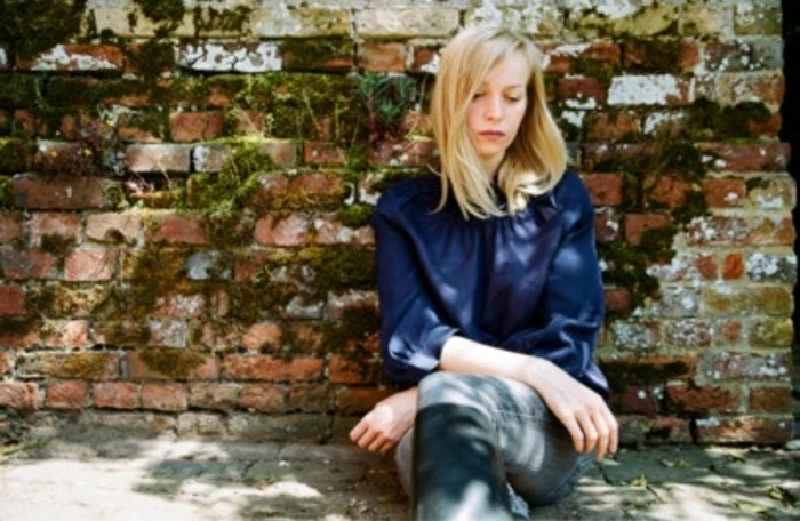
intro
John Clarkson speaks to Scottish-born songwriter Dot Allison about her recently released fourth solo album, 'Room 7½', which features appearances from both Paul Weller and Peter Doherty
Dot Allison has been described by her close friend and regular collaborator, Peter Doherty, as being like “some gifted child locked in the attic of the music industry.” A musician’s musician, Allison has recorded five albums of wildly versatile material and worked with several of the record industry’s best known and most highly regarded figures, yet has always remained an underground and cult act. Allison, who was born in Edinburgh in 1969, first came to public attention in the early 1990s as the front woman with One Dove, an electronic dance trio which she joined while taking a degree in Applied Biochemistry at Glasgow University. One Dove released a well-received album, ‘White Morning Dove’, on London Records in 1993, had minor chart hits with the singles, ‘White Love’, ‘Breakdown’ and ‘Why Don’t You Take Me?’, and songs mixed by both Andrew Weatherall and Stephen Hague. The group, however, became caught up in both internal disputes and also arguments with London about its future direction, and broke up in 1996 midway through sessions for a second album. Dot Allison re-emerged as a solo artist with her first album under her own name, ‘Afterglow’ (Heavenly) in 1999. ‘Afterglow’ at one level revealed Allison’s love of sixties pop and soul acts. At another, inspired by her experiences on morphine after being involved in a car crash and confined to a wheelchair for some months the year before, it was also hazy and narcotic in sound, drawing Allison comparisons with trip hop acts such as Massive Attack, whom she would subsequently appear on two world tours with, and Portishead. ‘Afterglow’ also included contributions from the Stone Roses and Primal Scream’s Mani Mounfield and My Bloody Valentine’s Kevin Shields, and a co-write, ‘Did I Imagine You?’, with Hal David, the lyricist partner of Burt Bacharach. Her next album, 2002’s electronic-based and experimental ‘We Are Science’ (Mantra Records), was co-produced by Allison with Dave Fridman (Mercury Rev, Flaming Lips) and found Allison abandoning conventional song writing structure to use her voice , instead of primarily, as another instrument in an absorbing series of riffs and washes. Allison’s third solo album, ‘Exaltation of Larks’ (Cooking Vinyl), followed five years later in 2007, and, psychedelic and folk-oriented, was produced in New York by Kramer (Galaxie 500, Low). Allison’s latest album, ‘Room 7½’, was co-produced by Rob Ellis, PJ Harvey’s regular producer since 1990. It features appearances on several of its tracks on from Mick Harvey (The Birthday Party, Nick Cave and the Bad Seeds-guitar), James Johnston (Nick Cave and the Bad Seeds, Gallon Drunk-guitar and bass) and Terry Edwards (Gallon Drunk, Tindersticks-saxophone). There is a cover of Scott Walker’s ‘Montague Terrace’, whose theatrical production ‘Drifting and Falling’ Allison appeared in with Jarvis Cocker and Damon Albarn last year, and there are also two duets. The first ‘I Wanna Break Your Heart’, is a co-write with Peter Doherty, while the latter, ‘Love’s Got Me Crazy’, was recorded and written with Paul Weller. On the surface, ‘Room 7 ½’ is lavishly beautiful, a swooning set of gorgeous textures and melodies, topped off by Allison’s ethereal and elegant vocals. Lyrically, it is, however, more brooding and, a reflection on romance, often dark. Love on its first two tracks, ‘Cry ‘ and ‘Paved with a Little Pain’, is so overwhelming it hurts. On ‘I Wanna Break Your Heart’, it is sado-masochistic is tone, while on ‘Buzzing Round the Honey Pots’ and the title track it has become adulterous. For the isolated narrator of ‘Montague Terrace’ it is a bittersweet memory, and only ‘Love’s Got Me Crazy’ and the final hidden track, ’Portrait of the Sun’, offer any real degree of hope. As Dot Allison, however, explained in an interview with Pennyblackmusic, ‘Room 7½’ is more about the intoxicating nature of love, the intensity that can come with it, rather than its harshness and unfairness. PB: At the time of ‘Afterglow’ you said in an interview that you wrote your songs acoustically with guitar, voice and occasionally piano and then built them up. Is that the way you still write music or did you write the songs for this album in a different way? DA: I just wrote it with guitar. After the last album I changed my whole home studio around. It was almost like I had to spring clean my life musically (Laughs). I got rid of all my gear and stripped everything back, and I ended up writing the majority of the demos for this album with my guitar and Dictaphone and then sometimes onto my Mac. The songs that I co-wrote on the album I, however, wrote in different studios to my own, which I quite enjoyed doing as it is a very different kind of discipline to have someone else involved in them. I also asked Rob Ellis how PJ Harvey writes when she presents demos to him and he told me that it is literally just a cassette with a vocal. I thought that was quite interesting, so I decided to try that too, to keep things really, really raw and then build the songs up in the actual studio. There were two tracks on the album that I did that with. PB: Each one of your records is different and distinct in sound from one another. Do you set out with a blueprint for each record or do you just write and experiment and see where the music takes you? DA: There is a vitality in change, I suppose, and it is in the nature of things that nothing remains the same. I just feel that it would be a stagnant thing to do to make the same sort of production line record. Some bands do get a formula. They get successful and then they stick with it, but I think that can be to their detriment as well. Without actually thinking about it or planning it too much I suppose I have ended up thinking, ”I have done that. I don’t want to do it again.” PB: You have now survived twenty years in music which is an achievement in itself. You’ve become during that time quite well known, but you have never had massive commercial success. Do you think that has allowed you more musical freedom as a result? DA: Probably. To keep getting signed and making records at the same time has been quite challenging. Usually bands that are signed to the major route have their record labels breathing down their neck trying to get them to remake the last album or whatever. Maybe I have been able to do my own thing more. I guess by never really conforming that has in a way helped my longevity as I have always remained a bit unquantifiable. I don’t know though. PB: What is your current label, Arthoused? Who runs that? DA: That’s mine. There’s a distribution deal, but it’s my own imprint. PB: Why have you decided to do that rather than sign with another label? You have been signed to some very well-regarded labels like Cooking Vinyl and Heavenly in the past. DA: It’s been mainly because that route was going to allow me to make the album I wanted to make. Doing a distribution deal with my own imprint was going to allow me more financial freedom to make it. The alternative was to go a label and get an advance that wouldn’t actually be enough to live off. Rob and I worked out an ideal budget, including a wish list for the people that we wanted to appear on the album, and we managed to work to that. PB: Most of the songs on ‘Room 7½’ look at love in some form. On it, however, love often comes across as a pretty intense, horrible thing. Do you see love as being essentially painful rather than happy? DA: No, I think love is powerful. It can be nourishing in which case it is a very, very powerful positive force, but if it is withdrawn from you or abused then it becomes a very powerful negative force. Apparently the greatest anger that anyone expresses is on the withdrawal of love. It is a very powerful need of humanity, and ‘Room 7½’ is just observing that really. It is more me observing more the power of it than its negative traits. PB: How many of your songs are based on personal experience and how many of them are written as a character? DA: I guess that there is a bit of me in all of them, but at the same my imagination plays a huge part in it. I don’t think that there are any songs on the current album that are simply a personal exorcism. I tend to think about the feelings I have had on something so that I can draw an image out of it, but it doesn’t mean that song is about that situation specifically or even me. PB: Rob Ellis has worked with a lot of other strong female singers. As well as PJ Harvey, he has also worked with Marianne Faithfull and Alison Goldfrapp. Was that why you wanted to work with him? DA: It was because of his work with PJ Harvey. That was why. PB: The album also features appearances from Mick Harvey, James Johnston and Terry Edwards. What do you think they brought to the record? DA: Loads. They’re really brilliant musicians. They’re really intuitive players and they’re really creative people. They’re all artists in their own right, and they brought a real mood to the creative and recording process. I obviously sat down with them and we talked about the sort of thing which I was envisaging for their parts. You can do a certain amount of intellectualizing about where an album should go, but then, when it comes to actually recording, everybody, I think, creates something in the moment that they didn’t plan and which is spontaneous. Those musicians are really brilliant at going into a zone and creating something fresh. You’re halfway there if you’re working with people in which you have got shared reference points. If you’re on the same page, that is half of the battle. There is something though to be said for getting yourself out of the way of the song. Certain personalities can do that better than others. Those people are really lovely people to work with. It’s all about the song with them. It is a fine balance getting all that right and I think we did that with this album. PB: What was the actual mood that you were going for with the album? DA: I wanted it to be nocturnal and searching, a bit reflective. I spent a lot of 2004 being quite nocturnal. I had a year where I sat up all night (Laughs). Not partying. My body clock was just upside down. A lot of the album, not all of it, but a lot of it was written at that time. PB: You have collaborated with Peter Doherty on various occasions before, both as a co-writer and touring with Baby Shambles. How did the song, ‘I Wanna Break Your Heart’ that you recorded with him for this album come together? DA: We wrote that because we were going to do our first gig together at Filthy McNasty’s in London and we both wanted a new song for it. It was actually the first song that we co-wrote together. We ended up just writing that song and thinking, “Hang on! This is quite good” and things went from there with our song writing partnership. It is a song that we are both proud of. PB: There is a story now circulating that you are now working on an album with Peter. Is there any truth in that? DA: There is a bit. We have been talking about doing that for years and putting together an album of some of the songs that we have already released and also some new songs. We were talking about maybe doing that again the other day, but he is incredibly busy and I have got my own thing as well. We’re definitely going to write more songs together and we’ll just see how it goes. PB: The other co-write on the album was with Paul Weller. Is it true that he got your number after being out with Bobby Gillespie from Primal Scream one night and that he texted you out of the blue and suggested writing a song ? DA: He did. That was amazing. I was completely honoured to be asked. I really learnt a lot from that experience. I found him really easy and lovely to work with. He is a really down-to-earth person. I have always played his music anyway. I had some of it in my DJ set even. I used to play a remix of one of the tracks from his first solo album in it. It was a big thing to be asked. The song that we wrote and recorded together, ‘Love’s Got Me Crazy’, fitted perfectly onto the record. PB : There is also a cover of the Scott Walker song, ‘Montague Terrace’. That originally came out on a tribute album, ‘30th Century Man’. Why did you reprise that here? DA: It is very Nico-ish. It has got a mood on it that I really like and it makes me think of ‘Chelsea Girl’ even if it is not really that sonically like it. I just felt again that it would fit in well with the rest of the record. PB: Do the bulk of your collaborations come from you approaching these musicians or do they generally approach you? Is it a two way thing? DA: It is a two way thing. I was approached to do the Scott cover and album and also to appear very briefly in the film of the same name about Scott and then ‘Drifting and Falling’. I have approached people though as well. I approached Mani and Kevin Shields to play on ‘Afterglow’, but with Pete he approached me first to play on a song of his called ‘At the Flophouse’ and things went from there. Paul also approached me, so recently I have not done as much as that, although I have ended up with the fruits of the bulk of those sessions and some of them going on the album. In all cases though it has been something that has organically happened. PB: You’re also appearing on a film soundtrack, a horror film ‘Triangle’ in which your vocal is a large part of the score, aren’t you? DA: Yes. That again was someone that approached me. I had been working with the director Christian Henson’s brother, Joe. Joe plays bass with me and we do a bit of writing together. Christian liked my voice from what he heard I had been working on with Joe on and so I temped up a score with Christian It sounds both innocent and sinister and we both thought that it worked quite well. We have just done another one, a score to another horror film. That was how that one came about, just through the same sort of connections of working with people. PB: How do you look back on One Dove now? DA: Musically I think that it was good. I am proud of it. On a personal level it was quite challenging. There was a lot of bad luck and record company wrangles and inter-band politics and all that sort of crap and nowadays I think, “Ooh!, I don’t know if I would go through all that again.” Musically I am proud of it and I think we made something that was of its time and that touched people in the right way. I don’t look back on it and think, “I wish we hadn’t done it like that.” PB: You’ve got according to Wikipedia an album of past collaborations and remixes in the pipeline. Is that true? DA: I don’t know who put that up there. It’s a good idea (Laughs). I was saying to my manager that maybe we should do that. That would be good. There’s nothing in the pipeline though. PB: You also used to do a lot of DJ work. Is that something which you are still actively involved in? DA: Not really. Not really. It was more of a hobby and I haven’t DJ’d for a while. I used to have a semi-residency. Andy Bell out of Oasis has a club in Sweden called Bangers ‘n’ Mash and that was the most recent thing I did. I closed their season there in 2007, but I have not gone back. I should do, as it was really good fun. It is not really though where my head is at anymore. PB: You are supporting Peter Doherty in September. Will you be doing other dates to promote ‘Room 7½'? DA: Yeah, we are just trying to put some headline dates together for October and something for December as well. I will be out and about promoting it. Maybe not six months on the road or anything like that, but I will be out performing it definitely. PB: What other plans have got for the future? DA: I have got a few irons in the fire. I am thinking of doing a very confessional, very just one voice type of album and then I am also working on a female band project with a friend called The Accidental. There are few other things in the pipeline as well. I am not sure what is going to end up where or when and I am not tied to any one thing yet in my head. I am going to basically keep writing. PB : Thank you.
Picture Gallery:-
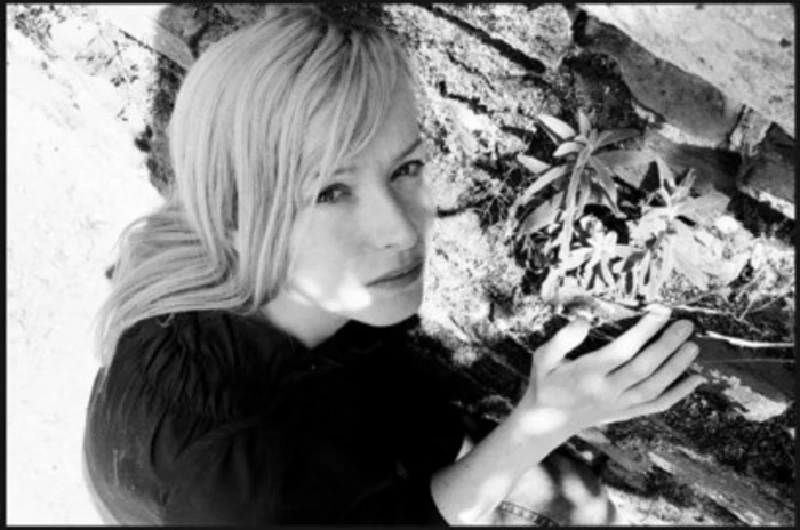
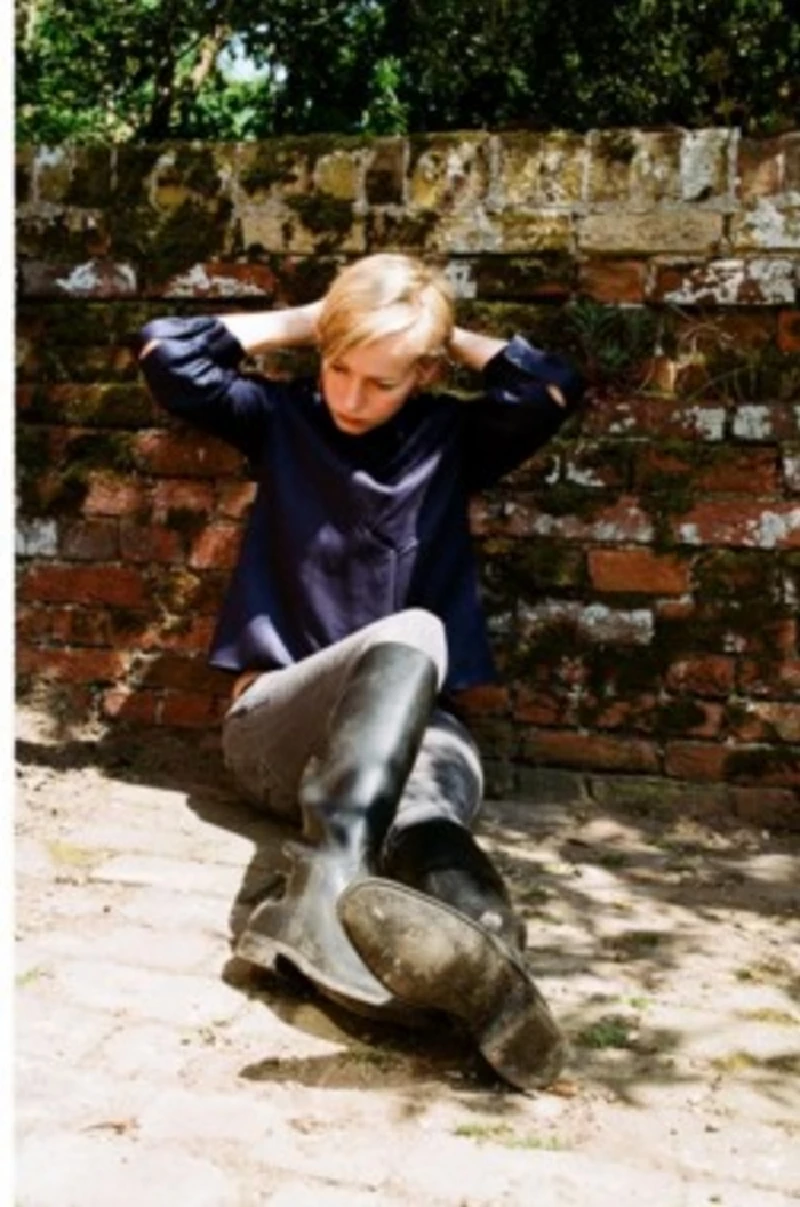
interviews |
|
Interview (2021) |
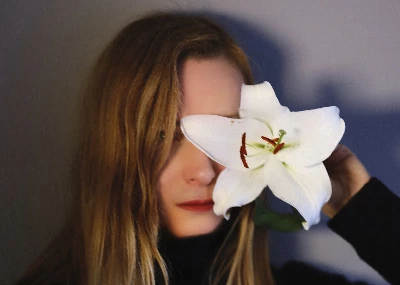
|
| Edinburgh-born singer-songwriter and musician Dot Allison talks to John Clarkson about ‘Heart-Shaped Scars’, her first new album in twelve years. |
reviews |
|
Room 7½ (2009) |
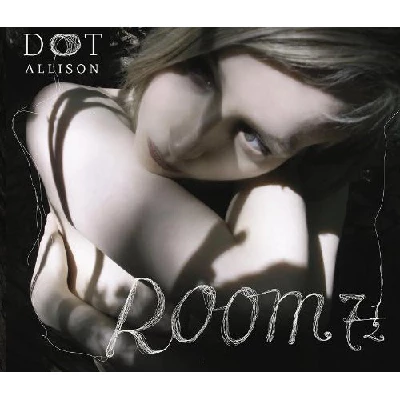
|
| Emotive and ambitious, if somewhat over melancholic latest solo album from Scottish singer-songwriter Dot Allison, which includes duets with Peter Doherty and Paul Weller |
| Strung Out (2002) |
most viewed articles
current edition
Carl Ewens - David Bowie 1964 to 1982 On Track: Every Album, Every SongArmory Show - Interview with Richard Jobson
Colin Blunstone - Thalia Hall, Chicago, 16/7/2025
John McKay - Interview
Visor Fest - Valencia, Spain, 26/9/2025...27/9/2025
Bathers - Photoscapes 1
Robert Forster - Interview
Billie Eilish - O2 Arena, London, 10/7/2025
Loft - Interview
Sir Tim Rice - Interview
previous editions
Heavenly - P.U.N.K. Girl EPManic Street Preachers - (Gig of a Lifetime) Millennium Stadium, Cardiff, December 1999
Beautiful South - Ten Songs That Made Me Love...
Oasis - Oasis, Earl's Court, London, 1995
Trudie Myerscough-Harris - Interview
Prolapse - Interview
Pixies - Ten Songs That Made Me Love...
Coldplay - Wembley Arena. London, 16/8/2022
Boomtown Rats - Ten Songs That Made Me Love....
Peter Perrett - In Dreams Begin Responsibilities Interview Part One
most viewed reviews
current edition
Amy Macdonald - Is This What You've Been Waiting For?Sick Man of Europe - The Sick Man of Europe
Lucy Spraggan - Other Sides of the Moon
Davey Woodward - Mumbo in the Jumbo
Phew, Erika Kobayashi,, Dieter Moebius - Radium Girls
Alice Cooper - The Revenge of Alice Cooper
Bush - I Beat Loneliness
Blueboy - 2
Suzanne Vega - Flying With Angels
Cynthia Erivo - I Forgive You
Pennyblackmusic Regular Contributors
Adrian Janes
Amanda J. Window
Andrew Twambley
Anthony Dhanendran
Benjamin Howarth
Cila Warncke
Daniel Cressey
Darren Aston
Dastardly
Dave Goodwin
Denzil Watson
Dominic B. Simpson
Eoghan Lyng
Fiona Hutchings
Harry Sherriff
Helen Tipping
Jamie Rowland
John Clarkson
Julie Cruickshank
Kimberly Bright
Lisa Torem
Maarten Schiethart